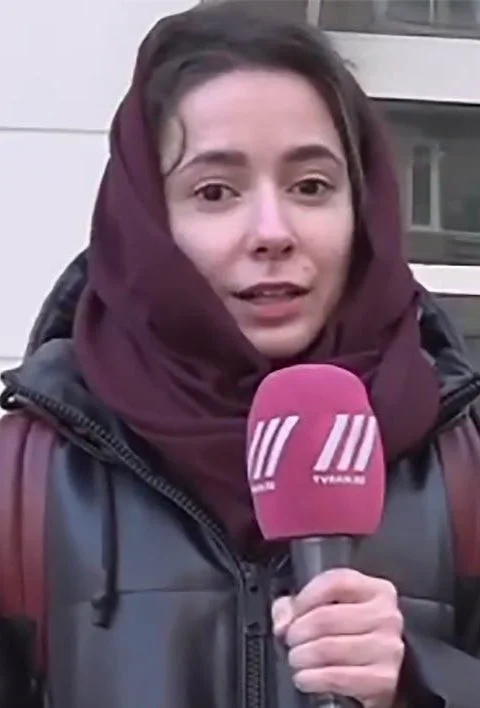Georgia: Tamar Sharikadze Resigns from Pro-Government Network Over Pressure to ‘Encourage Violence’
Resignation follows a wave of journalists leaving TV Imedi amid rising concerns over editorial interference
Location: Georgia, Tbilisi
Date: June 17, 2024Women Press Freedom commends Tamar Sharikadze for her principled stand against editorial pressure, leading to her resignation from Imedi TV after demands to produce content that "encouraged violence." Following numerous attacks on press workers and independent outlets after the parliament passed the controversial “foreign agents” law and a spate of resignations from Imedi, Sharikadze's public departure from the channel is emblematic of the rising challenges faced by journalists in Georgia. We stand in solidarity with all journalists who chose to safeguard journalistic integrity by confronting interference in their work and refusing to participate in harmful or untruthful reporting aimed at sowing discord amongst the public. More international pressure must be applied to the ruling Georgian Dream party to stop its cynical attempts to control and manipulate the media for its own ends.
Tamar Sharikadze, reporter with news program Kronika, publicly announced her resignation from Imedi TV on June 17, 2024, after five years working for the broadcaster. The journalist accused an unnamed “immediate” supervisor of asking her to prepare a TV story “which would definitely encourage violence.”
"I will never be a signatory to such unverified facts that promote violence!" Sharikadze proclaimed on Facebook.
Her decision was met with support from unnamed colleagues at Kronika, evidencing internal dissent within Imedi TV.
Imedi TV, known for its alignment with the ruling Georgian Dream party, has faced accusations of biased reporting and dissemination of disinformation. The Georgian Charter of Journalistic Ethics previously accused Imedi TV's leadership of compromising journalistic principles to favor pro-government interests.
The resignation of Sharikadze follows a pattern of departures from the channel. On June 18, 2024, another journalist at Imedi, Tiko Peikrishvili, left the channel without specifying the reason for her decision. Last month, Mediachecker reported that at least three Imedi anchors — Zurab Balanchivadze, Natia Orvelashvili, and Ekaterine Amirejibi — had left the network.
In December 2023, Women Press Freedom documented the resignation of Rusa Shelia, a US-based correspondent for Imedi, who left due to the network's alleged anti-USA stance. Shelia, initially covering the Russia-Ukraine conflict and later moving to Washington D.C., noted a shift in Imedi's editorial policy towards discrediting the United States. Her criticisms of the “foreign agents” law led to demands for her return to Tbilisi and eventually her resignation.
Women Press Freedom believes that such exits signal a broader erosion of press freedom in Georgia, where media outlets and journalists are increasingly pressured to conform to governmental narratives or face professional repercussions.
In response to Sharikadze's resignation, Natia Songhulashvili, head of news at Kronika, criticized her former colleague's stance, suggesting that dissenting voices are unwelcome at Imedi TV. Such sentiments were echoed by Kronika producer Keti Latsabidze, who minimized Sharikadze's concerns by stating, "Telling the truth is not encouraging [violence]."
The media landscape in Georgia has witnessed heightened tensions following the implementation of the “foreign agents” law earlier this year. Violations documented by Women Press Freedom show coordinated attacks against journalists and media outlets critical of the government and this restrictive law. This legislation — condemned by the EU and U.S. — intensifies government scrutiny over media outlets and civil society organizations deemed to receive significant foreign funding.
Tamar Sharikadze's resignation from Imedi TV is an example of the significant challenges confronting journalists in Georgia today. The coercive environment within pro-government media institutions, combined with legislative measures to curtail freedom of expression, poses severe threats to journalism. We demand that the Georgian government cease its assault on press freedom and allow the media to report freely without pressure and intimidation to align with its preferred narrative.
The flagrant press violations spearheaded by Georgian Dream must end. The international community, particularly the European Union, of which Georgia seeks membership, must continue to loudly condemn the crackdown on the press led by the ruling party and implement sanctions on those responsible, as the US has done already. Media capture and editorial pressure on journalists to produce government propaganda do not align with the media freedom principles of the EU.
Women Press Freedom is an initiative by The Coalition For Women In Journalism
The Coalition For Women In Journalism is a global organization of support for women journalists. The CFWIJ pioneered mentorship for mid-career women journalists across several countries around the world and is the first organization to focus on the status of free press for women journalists. We thoroughly document cases of any form of abuse against women in any part of the globe. Our system of individuals and organizations brings together the experience and mentorship necessary to help female career journalists navigate the industry. Our goal is to help develop a strong mechanism where women journalists can work safely and thrive.
If you have been harassed or abused in any way, and please report the incident by using the following form.



























